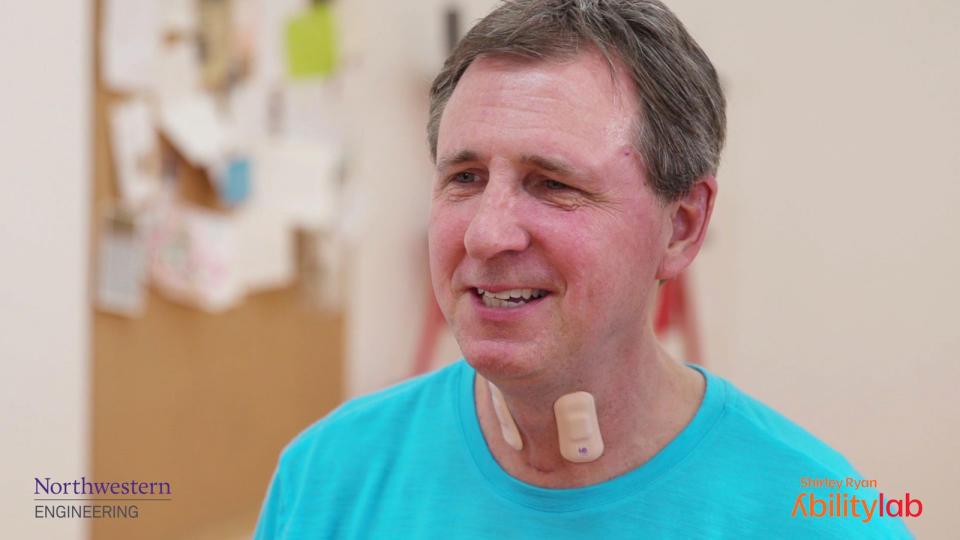Throat sensor helps you recover from a stroke
It can track speech and swallowing cues that reflect your progress.
Your abilities to speak and swallow are frequently signs of how well you're coping after a stroke, but measuring that is difficult. Microphones frequently can't distinguish between the patient and ambient sounds, and there's the not-so-small problem of making sensors that can hold up to the rigors of life outside of the hospital. Northwestern University may have a better way: its scientists have designed a wearable throat sensor that help diagnose and treat aphasia, a communication disorder typically associated with strokes. The wireless device tracks the vibration of your vocal cords to gauge your recovery and determine whether or not doctors need to intervene.
The sensor is not only more accurate than a mic, but considerably more comfortable and durable. A set of "novel materials" help it bend and stretch so that it's not irritating your throat or breaking under stress. Doctors can see how you speak and swallow in real life, not just in the controlled conditions of a hospital room.
When combined with other sensors that track factors like heart functions, muscles and sleep, the throat tech promises a relatively unintrusive look at how your whole body is faring. It won't guarantee a full recovery, but it could speed your progress and help you resume at least some of your daily routine.


